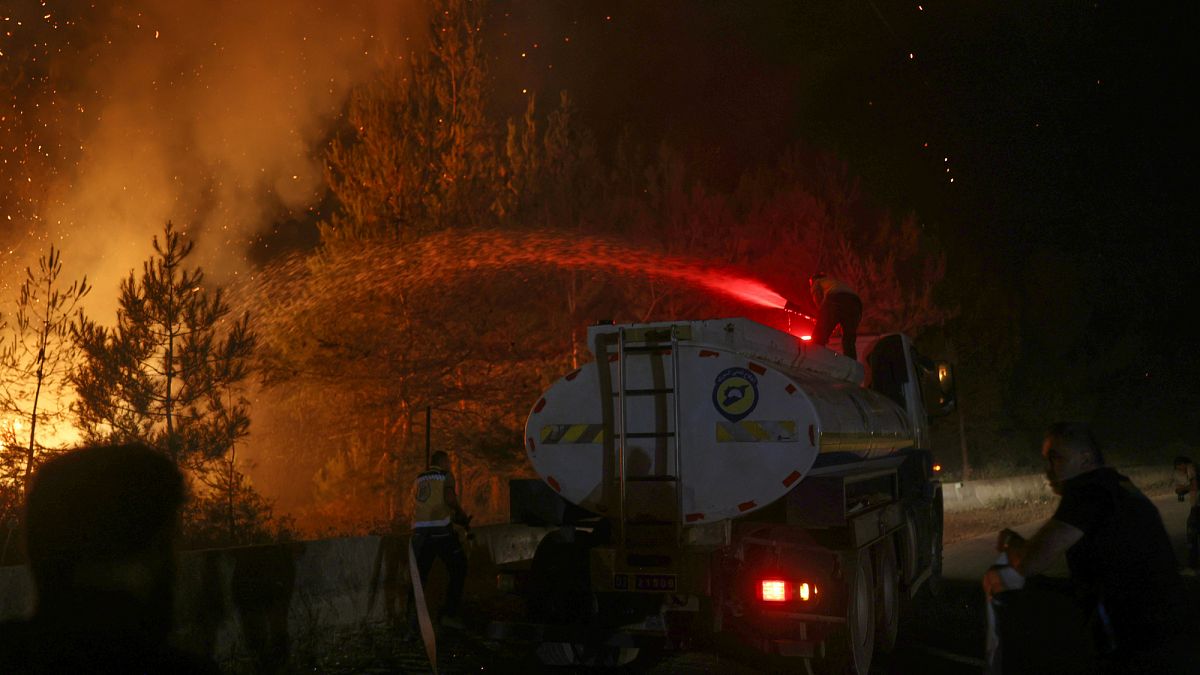

In recent weeks, a tapestry of climate events has unfolded across the globe, offering a poignant reminder of nature’s unpredictable force and the urgent need for mindful, collective action. From Europe to Asia, communities are facing the dual threats of fiery landscapes and deluged fields, pointing to a harsh reality that demands both immediate responsiveness and long-term strategies.
The serene landscapes of Europe have been dramatically transformed by both turbulent storms and relentless wildfires. In the Balkans, severe storms have unleashed their fury, while Türkiye, Spain, and France grapple with wildfires that consume dry woodlands, leaving a trail of ash and silence. In France, the bustling city of Marseille narrowly escaped a more devastating blaze. Over 15,000 residents, once confined indoors as a protective measure, have now been permitted to step outside as the flames were heroically brought under control. Yet, caution remains the watchword, as French authorities underscore the unusually high-risk summer ahead due to persistent dry conditions and gusty winds.
Amidst these challenges, communities strive for resilience and adaptation. Across the continent, there is a growing recognition of the need to balance human activity with ecological preservation. This balancing act is notably underlined in the Netherlands, where the intricate dance between agricultural demand and environmental health is in full swing. The prevalent emission of nitrogen from Dutch farms places European Union green goals at risk, challenging policymakers and farmers alike to rethink current practices and embrace sustainable methodologies.
As Europe navigates these challenges, a voice of moral and spiritual encouragement resonated within Vatican City. With a powerful message against the backdrop of a warming planet, Pope Leo XIV celebrated the first ‘green Mass,’ calling upon mankind to acknowledge the greed fuelling climate injustice. In a remarkable act of leadership, the Vatican is advancing plans to build a solar farm, aspiring to become the world’s first carbon-neutral state. This symbolic move not only highlights the critical relationship between faith and ecology but also serves as an inspiring call for global communities to tread lightly yet firmly on this planet.
Simultaneously, across the Asian continent, Pakistan endures its own climate ordeal as accelerated glacial melts and monsoon rains have converged to trigger perilous floods. Northern Pakistan bears witness to the stark impacts of record temperatures, with swollen rivers spilling beyond their banks and devastating landslides reshaping landscapes and lives. At least 72 lives have been lost, with more than 130 people injured since late June. The haunting memory of the 2022 floods serves as a poignant reminder of the need for robust infrastructure and early warning systems to protect vulnerable populations from the caprices of nature.
In navigating these multifaceted challenges, the threads of connection between diverse regions become evident. Whether it is managing nitrogen emissions in the agricultural heartlands of Europe or crafting climate-resilient policies to shield against Pakistan’s floods, the intertwining issues call for an inclusive approach that harmonizes human activity with the Earth’s natural rhythms. As communities and leaders worldwide embrace this pathway, lessons in resilience, adaptability, and shared responsibility echo as guiding stars on the journey toward a sustainable future.
Ultimately, these climate events, while stark reminders of the immediate challenges at hand, are also opportunities to engage in earnest conversations and actions that forge stronger, healthier pathways for the future. The engagement of communities, supported by thoughtful leadership, can weave a rich fabric of sustainability and harmony that honors both the planet and its people.
Source: {link}
